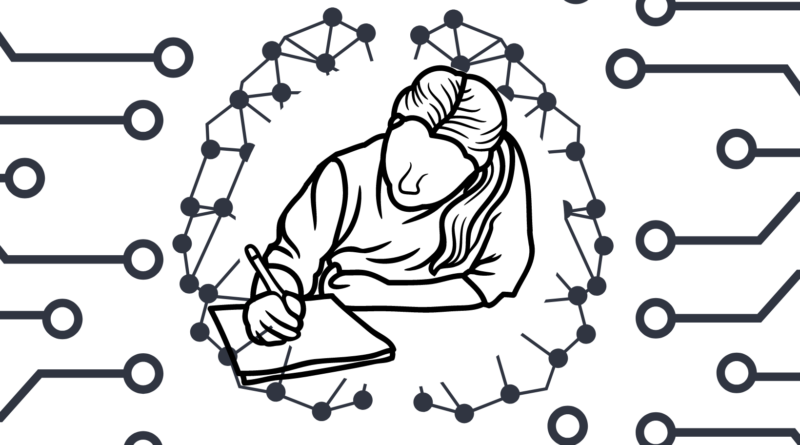Will AI Make my Humanities Degree Useless?
Whether you’re a computer science major or a future-minded entrepreneur, chances are that you have considered the role artificial intelligence (AI) will play in your career. With access to these types of technology growing (looking at you, ChatGPT), it’s hard to ignore the changes coming along with it.
Most people find it an exciting or intriguing topic, but for those conspiracy theory enthusiasts or futuristic existentialists who fear robot takeover, it can be scary. This uprising can also inspire fear for students majoring in English, literature, writing communication and other disciplines in the humanities.
As a writing communication major, I have heard countless stories about AI writing a more succinct essay than a Ph.D. student or something of the like. Writing is a field fraught with mechanical errors and technical specifications, contrary to what many people might assume. The risk of human error in formatting and stylistic areas automatically makes the discipline an ideal target for technological assistance.
I have even been told on more than one occasion that my degree is going to be worthless in a few years, and that I should have a backup plan. This is always jarring because my typical consolation when I get career-plan anxiety is reminding myself that communication is one of the most widespread fields and assuring myself that my degree will be a versatile tool in the future. So much for that, I guess.
Is that true, though? Will the degrees of people like me be inconsequential down the road? This is a question that I have been pondering ever since reading “Revisiting the Jobs Artificial Intelligence Will Create,” published by MIT Sloan. This article discusses the implications of AI development for humanities majors and the changes that will occur in the job market as a result. The authors argue that while some job displacement will occur, new jobs are also being created.
“Broadly speaking, we came up with three categories of jobs that we call trainer, explainer and sustainer—three categories of new jobs where we’re using our human capability in different ways to allow AI to have the positive impact on the way we work, the way we live and overall a positive impact on outcomes,” said Paul Daugherty, Group Chief Executive of Accenture.
The category that most sticks out to me from this triad is the “explainer.” For communication majors, this sounds like a promising field for our skills. Because AI technology is so foreign to most people, we will need someone to explain it to the masses. In addition to having a one-on-one guide to using AI, there will also be job opportunities for writers who want to create instructional manuals or informational essays about AI usage.
While some alternative options to this position being filled by real people are instead creating educational videos and tutorials, the public perception of that idea is negative compared to the alternative of having another human to walk you through the process, which is something currently lacking in a lot of technological fronts.
This lack of human connection is something that many of us felt acutely when we lost our ability to socialize with our communities in the same ways we were used to because of lockdowns and COVID-19 restrictions. Regardless of political views, virtually everyone was eager to return to face-to-face interactions when it was safe and responsible to do so. This speaks to the universal nature of our desire for connection. The interpersonal skills that facilitate these interactions are arguably more valuable now than ever before.
I choose to believe that as long as publications like The Highland Echo have a readership, there is hope out there for writers of all genres. Whether you want to enter the arena of technological writing or stick to more traditional topics, there is a future out there for your work. The fact that I have an audience to write this article to is proof to me that there are still avid consumers of genuine, imperfect journalism.
You could be reading an AI-generated short story on any topic of your choosing, but instead you are supporting the pursuits of a college newspaper. Grammatical errors will be made and subjectivity might be inevitable, but I firmly believe that the relatability and genuineness found in these “human errors” are what has drawn us into literature and journalism throughout history, and what will continue to entice readers in the future.

